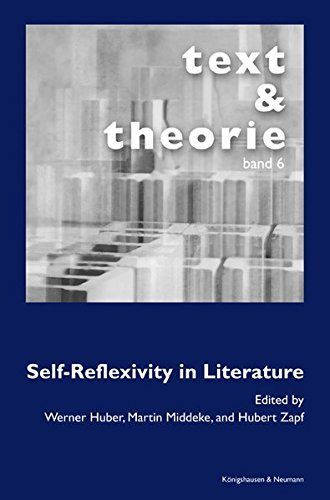
Self-reflexivity in Literature
Introduction - C. Henke: Self-Reflexivity and Common Sense in A Tale of a Tub and Tristram Shandy: Eighteenth-Century Satire and the Novel - C. Goer: Wie Tyrann Amor seine Meisterin fand: Die Geburt des Individuums aus dem Geist der Musik in Wilhem Heinses Musikroman Hildegard von Hohenthal - H. Breuer: John Keats' Ode To Autumn als Metapoesie - H. Zapf: Structure, Chaos, and Self-Reference in Edgar Allan Poe - U. Böker: "A raid on the inarticulate:" Hawthorne, Hopkins, Hofmannsthal - T. Fischer-Seidel: Archetypal Structures and Literature in Joyce's Ulysses: Aristotle, Frye, and the Plot of Ulysses - P. Freese: Trouble in the House of Fiction: Bernard Malamud's The Tenants - B. Hesse: "The moo's an arrant thief" - Self-Reflexivity in Nabokov's Pale Fire - W. Huber: "Why this farce, day after day?" On Samuel Beckett's Eleuthéria - L. Volkmann: Explorationen des Ichs: Hanif Kureishis post-ethnische Kurzgeschichten - P. Lenz: Talking-Cures oder Tall Stories? The (Dis)Establishing of Reality in Conor McPherson's The Weir - A. Merbitz: The Art of Listing: Selbstreflexive Elemente in Nick Hornbys High Fidelty - A.Nünning: Fictional Metabiographies and Metaautobiographies: Towards a Definition, Typology and Analysis of Self-Reflexive Hybrid Metagenres - M. Middeke: Self-Reflexivity, Trans-/Intertextuality, and Hermeneutic Deep-Structure in Contemporary British Fiction - A. H. Kümmel: Mighty Matryoshka: Zum Konzept der fraktalen Person - M. Markus: Tu put it shortly: Abkürzungen, reflektiert am Beispiel englischer und deutscher Eigennamen - R. Weskamp: Selbstreflexion und Fremdsprachenerwerb